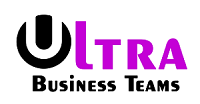Bookkeeping is crucial for any business. Mistakes can lead to expensive errors and lost time. Identifying common pitfalls can save both money and stress. I will explore these mistakes and provide simple ways to avoid them. Many small businesses overlook regular reconciliation of accounts. They might miss entering small transactions. This can cause discrepancies between actual and recorded balances. Using outdated software also poses a risk. Technology advances bring more accurate and efficient tools. Sticking to old versions can lead to errors or missed opportunities. Let’s not forget about categorizing expenses correctly. Misclassification can affect financial reports and tax submissions. Seeking help when needed is vital. Engaging professionals, like a Houston 401k auditor, ensures compliance and accuracy. It’s important to remember that successful bookkeeping involves diligence and attention to detail. Stick with the basics, be thorough, and always double-check. This keeps your financial records clean and precise.
Overlooking Regular Reconciliation
Reconciliation is essential for keeping your records accurate. By regularly comparing your bank statements with your ledger, you ensure all transactions are accounted for. Missing this step can lead to big discrepancies. These errors can escalate into severe financial issues.
- Set monthly reconciliation reminders.
- Cross-check every transaction.
- Immediately address any discrepancies.
Using Outdated Software
Software is a powerful tool in bookkeeping. However, using old versions can limit your efficiency. Updated software offers enhanced features and better security, reducing the chance of errors. Sticking with outdated versions may leave gaps in your financial records.
| Old Software | Updated Software |
|---|---|
| Manual entry | Automated processes |
| Limited security | Advanced security features |
| No cloud support | Cloud-based access |
Switching to updated software keeps your data secure and operations smooth. Research various software options that suit your business needs.
Incorrect Categorization of Expenses
Proper categorization of expenses is crucial. Misclassifying an expense can lead to inaccurate financial statements. This may affect decision-making and tax filings.
- Review categories regularly.
- Ensure correct classification during entry.
- Conduct quarterly audits of expense categories.
Consult the IRS guidelines to better understand expense classification.
Not Seeking Professional Help
Many businesses try to handle all bookkeeping tasks internally. While this might work for some, others benefit from professional assistance. Hiring an expert can ensure compliance and accuracy, reducing the risk of costly errors. Professionals are well-versed in the latest regulations and can provide valuable insights.
- Consider hiring a part-time bookkeeper.
- Engage a financial consultant for complex issues.
- Schedule regular consultations.
Engaging professionals, such as a Houston 401k auditor, brings peace of mind and expertise.
Conclusion
Effective bookkeeping is a cornerstone of successful business management. By avoiding common mistakes, businesses can maintain accurate financial records and make informed decisions. Regular reconciliation, using up-to-date software, and correct expense categorization are key practices. Additionally, seeking professional help ensures compliance and accuracy. Embrace these strategies to keep your bookkeeping precise and your business thriving.






